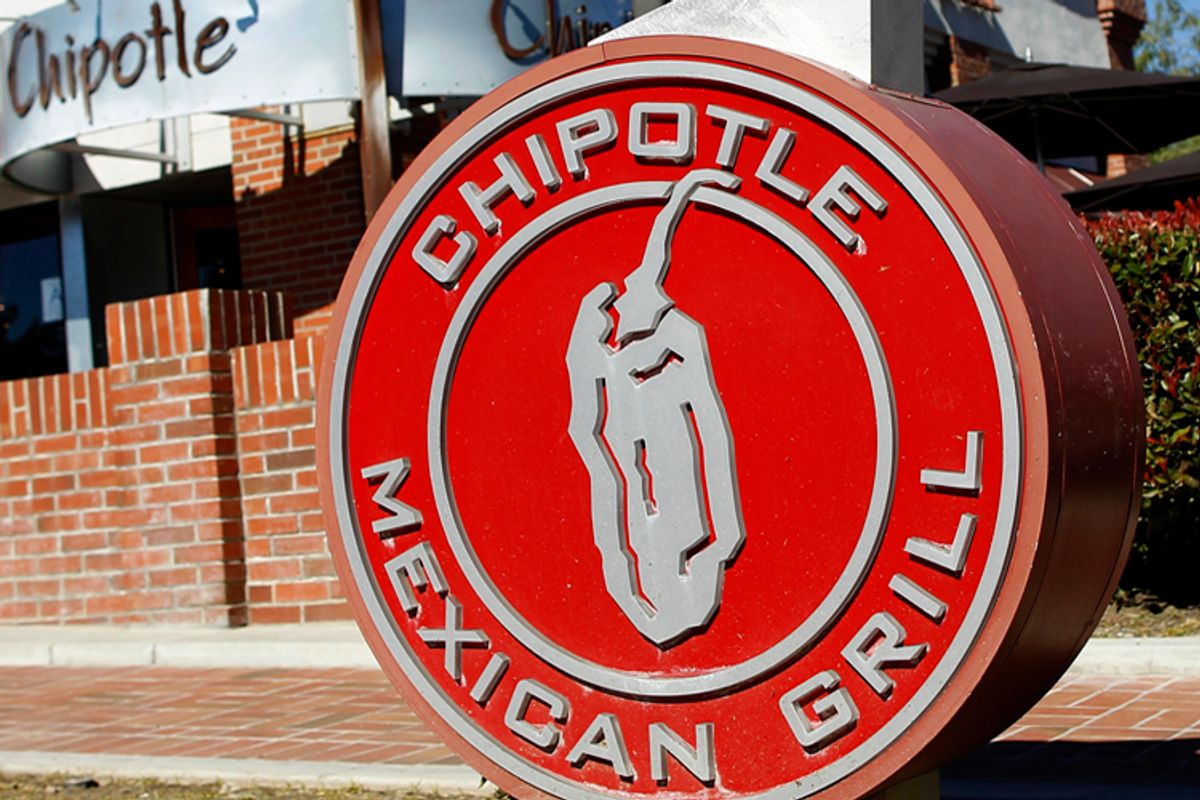No one wants to think about a future in which the effects of climate change are so severe, they affect our ability to grow avocados. But that's the reality -- and it's one that fast food burrito joint Chipotle is preparing for.
ClimateProgress read through the company's annual report, released last month, and discovered this worrying disclaimer hidden among the other risks of doing business:
Increasing weather volatility or other long-term changes in global weather patterns, including any changes associated with global climate change, could have a significant impact on the price or availability of some of our ingredients. Any increase in the prices of the ingredients most critical to our menu, such as chicken, beef, cheese, avocados, beans, rice, tomatoes and pork, would adversely affect our operating results. Alternatively, in the event of cost increases with respect to one or more of our raw ingredients, we may choose to temporarily suspend serving menu items, such as guacamole or one or more of our salsas, rather than paying the increased cost for the ingredients.
Why the guac? Why Chipotle? Here's more from ClimateProgress:
The guacamole operation at Chipotle is massive. The company uses, on average, 97,000 pounds of avocado every day to make its guac — which adds up to 35.4 million pounds of avocados every year. And while the avocado industry is fine at the moment, scientists are anticipating drier conditions due to climate change, which may have negative effects on California’s crop. Scientists from the Lawrence Livermore National Laboratory, for example, predict hotter temps will cause a 40 percent drop in California‘s avocado production over the next 32 years.
Chipotle’s commitment to organic, local, and sustainable farming practices is also one of the reasons why it may be more susceptible to unexpected climate shifts. As the company notes, its food markets “are generally smaller and more concentrated than the markets for commodity food products,” meaning Chipotle buys from producers that are less able to survive bad farming conditions without raising prices. And those prices have already been raised significantly over the last year, Chipotle said.
...Chipotle has a commitment to using local produce grown on farms within 350 miles of the restaurants where it will be served, so its California locations are likely the ones at highest risk from experiencing the drought effects of climate change.
It's unclear why Chipotle wouldn't just charge more for the guacamole, unless it's anticipating a truly disastrous shortage. The report certainly recognizes that removing the menu item "may negatively impact our restaurant traffic and comparable restaurant sales, and could also have an adverse impact on our brand" -- which, when you think about it, is kind of an understatement.



Shares